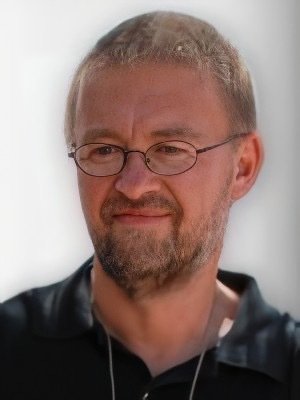Eritrea still standing, still tall!
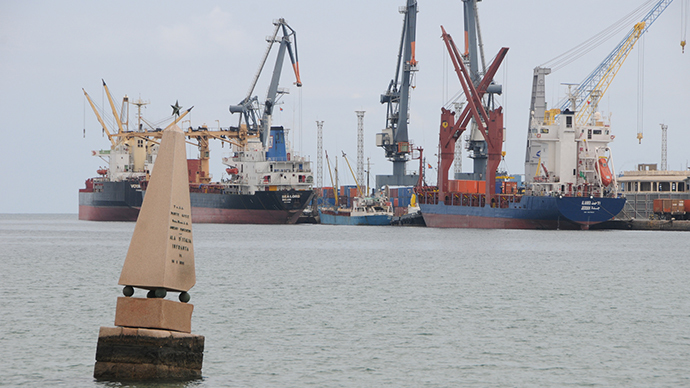
Sanctions, psychological warfare, propaganda, funding of its opposition, support for often hostile neighbors – the West has tried everything to break Eritrea. But here it is, undefeated and proud, marching forward.
Some call it the “African Cuba”, or it could also be named the “African Vietnam”, but the truth is that Eritrea is like no other country on Earth, and it is happy to remain as such, unique.
“We do not want to be categorized”, I am told over and over again, and whenever I ask whether Eritrea is a socialist country.
“Look at Amílcar Cabral, from Guinea-Bissau”, I am told by Elias Amare, one of the most accomplished writers and thinkers in Eritrea, who is also a Senior Fellow at the ‘Peace Building Center for The Horn of Africa’ (PCHA). “Cabral always said: ‘Judge us on what we are doing on the ground’. The same can be applied to Eritrea.”
Most of the leaders of Eritrea, most of its thinkers, are either Marxists, or at least their hearts are very close to socialist ideals. But there is very little talk about socialism here, and there are almost no red banners. The Eritrean national flag is at the center of all that is happening, while independence, self-reliance, social justice and unity should be considered as basic pillars of the national ideology.
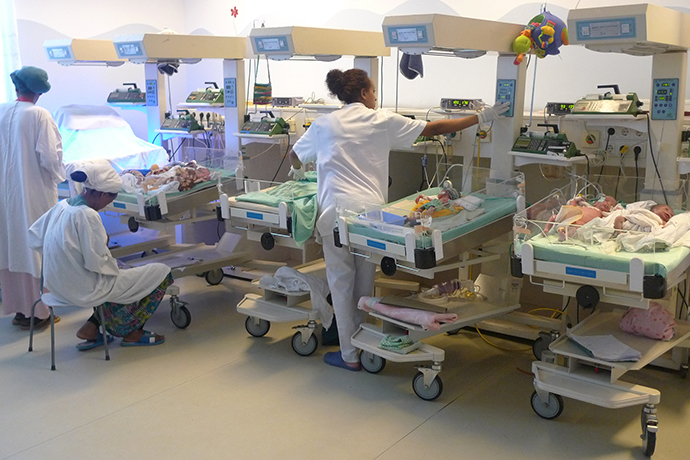
According to Elias Amare:
“Eritrea registered success, substantial achievements, in what the United Nations defines as ‘Millennium Development Goals’, in particular ensuring free primary education for all; ensuring women’s emancipation and equality of women in all fields. In healthcare, it achieved a dramatic reduction in infant mortality, as well as the reduction of maternal mortality. In this regard, Eritrea is considered exemplary in Africa; few other countries have attained that much. So, despite all the obstacles that the country faces, the picture is positive.”
“Eritrea continues on the national independent path. It has a progressive view in building national unity. Eritrea is a multi-ethnic, multi-religious society. It has nine ethnic groups, and two major religions: Christianity and Islam. The two religions co-exist harmoniously, and this is mainly due to the tolerant culture, that the society has built. There is no conflict or animosity between the ethnic groups or religious groups. The government and the people are keen to maintain this national unity.”
But is Eritrea really a socialist country? I want to know, I insist. “Go find out for yourself,” I hear repeatedly.
I go. I am allowed to come and see. I am taken to the places that I want to comprehend. I make friends here; determined, educated and well-informed friends.
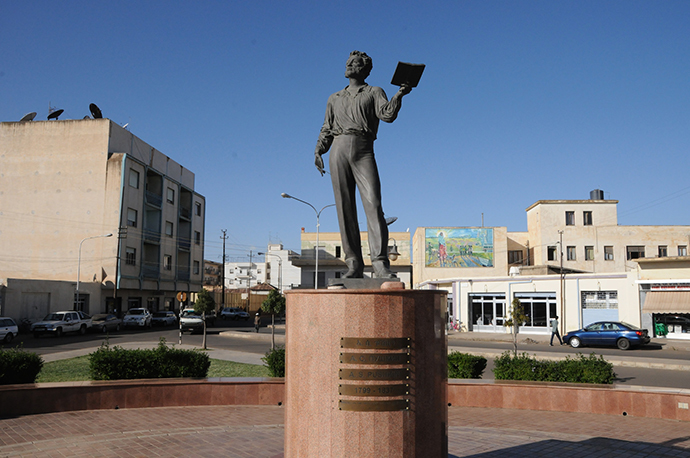
The propaganda pouring out of the West is defining Eritrea as a hermit ‘pariah’ state, closed to the rest of the world, militarized and oppressed.
But after the six years that I have lived and worked in Africa, I quickly managed to realize that the opposite is true.
In Eritrea I see great hope for the country itself and for the continent; I see education, hard work, meticulous planning for a better future, I see a new and sound development model.
There are brand new schools and colleges, rural medical posts, cancer and heart clinics, roads cutting through the mountains followed by electricity poles. There are dams that are used for irrigation - important elements in the ‘food security’ project.
Eritrea is poor, but it is poor with dignity. And it is clear that it is getting better, its social indicators are improving. Literacy is up from 20 percent right after independence in 1991 (only 10 percent for women), to the predicted 80 percent in 2015. Life expectancy, according to Dr. Misray Ghebrehiwet, the Adviser to the Minister of Health, went up from 49 to 63 years, which is very high by African standards. There is a compulsory and free vaccination program, and all Eritreans are enjoying almost free medical care, even medicine.
It soon becomes clear to me that all this is exactly the reason why Eritrea is sidelined, demonized and even feared by the West: it is actually doing “too much” for its people, and too little or nothing for the multi-national corporations and for the Empire.
It refuses to accept ‘help’, and it rejects loans. What it wants is respect, cooperation and equal treatment. It wants investment, even in the strategic mining sector, but only if the state retains controlling shares over at least 40 to 50 percent of the mining production.
*
When at the end of my stay, the “ERI-TV” interviewed me, I pointed out that Eritrea is to the West like a dangerous virus, ‘an ideological, anti-imperialist Ebola’.
And it is easy to see why:
This entire part of Africa is now under the absolute and brutal control of the West: Somalia and Djibouti, Ethiopia, Kenya, Uganda, Rwanda, the Democratic Republic of Congo (DRC), as well as South Sudan.
It is mainly because this is one of the richest parts of the world, in terms of its raw materials - one of the richest and therefore, one of the most devastated. In just the two last decades Western countries, and their multi-national companies, mostly though their proxies (client-states like Rwanda, Uganda and Kenya) have managed to murder around 10 million human beings. And in terms of the standard of living, the people in this part of Africa are patently the poorest on Earth.
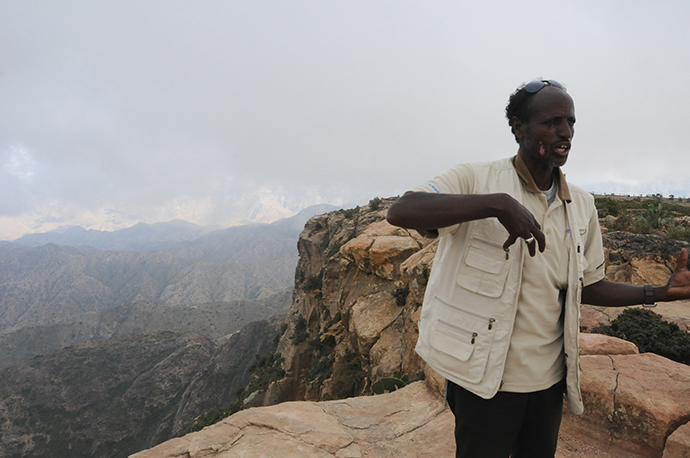
Then comes Eritrea, which fought for decades for its independence, and then demands that its resources should be used to feed, heal, educate and house its own people. It also insists that the entire Horn of Africa should enjoy freedom and self-determination.
‘Dangerous’, isn’t it?
What if the people in neighboring Ethiopia, Somalia, or DRC, begin paying attention and demanding a similar type of a society and government?
What if they demand a social net? What if they insist that, like in Eritrea, cabinet members just walk down the streets, without any guards.
Dr. Mohamed Hassan, a former Ethiopian diplomat in Washington, Beijing and Brussels, as well as an MP representing the militant Belgian Labor Party, explained to me, during our meeting in Asmara:
“Eritrea is not a neo-colonial state. Eritrea is an independent state. Eritrea does not host any military bases, any external forces. Eritrea has the vision, and not only for Eritrea, but also for the region. It is also promoting self-reliance and regional integration. It is also built on the ideal: ‘let us use our own resources, and let us build our independence. It means elevating the life of Eritrean people, particularly those in the rural areas. This approach was considered in the West, as Chomsky said, as ‘a rotten apple’.”
I ask him: Is it the main thing that the West is afraid of? Is it a ‘domino effect’ that the West fears?
He replies readily:
“Of course! Africa has some 50 percent of the world’s natural resources… Then consider this: the leadership of this country – they don’t steal. They are living a normal life, that of normal people. No leadership in any other country in Africa lives like ours here. You go next door – the Prime Minister of Ethiopia who just died, left his family some 8 billion dollars.”
That is, of course, dangerous as well. Corruption is one of the tools used by foreign powers in enslaving the countries. Corrupt leaders are easy to manipulate, and as a rule, they do very little for their own people, and everything for their families and for the Empire.
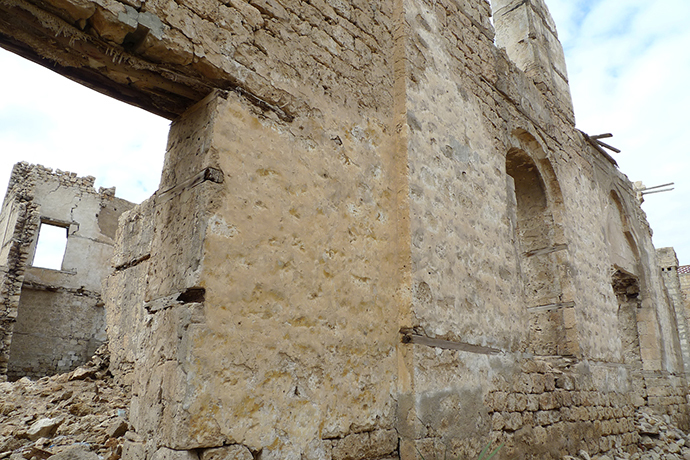
Elias Amare confirms:
“Big powers do not want the Eritrean example to be replicated in Africa. I say again, Africa has huge natural resources. Big powers are now trying to grab these resources. What will happen if other governments in Africa were to try to follow Eritrea’s example? It would definitely not be beneficial to them.”
For lack of a more realistic argument, Western powers are accusing Eritrea of “supporting terrorism,” particularly Somali ‘al-Shabaab’, which is also allegedly operating in Kenya. But Eritrea has no air force capable of transporting weapons, and between its ports and Somalia sits one of the most advanced surveillance systems on earth – that in Djibouti, a country which is hosting US and French military bases.
*
As a result of its policies, Eritrea is experiencing relentless ideological and propaganda attacks from abroad; it is clearly on the “hit list” compiled in the West, on the same list on which countries like Iraq, Libya and Syria were and are.
The West is using its toxic propaganda to the maximum, in order to smear the country, to confuse its people, and to force the most educated ones into exile by twisting data and painting the country as hell on Earth. The US even issues, periodically, visas to those Eritreans who are not in possession of a passport.
It is also systematically boosting, financing and manufacturing ‘the opposition’ here, as it does all over the world in the countries it considers to be “hostile.”
Aside of the usual political and propaganda tools, the West has even been implanting in Eritrea, extreme right-wing Pentecostal religious movements.
Periodically, huge campaigns from the BBC or Al-Jazeera get pointed, directly, at Asmara, trying to trigger rebellion: the President, a revered former freedom fighter, is ‘constantly dying’, and ‘the government is regularly overthrown’.
False news is spread, shamelessly and regularly.
Milena Bereket told me that at the height of the “coup that never was” (January 2012), “African Strategies”, her political think-tank based in Asmara, had to serve as a defying force that helped Eritrean patriots around the world counter the barrage of disinformation spread by the so-called “experts”.
That was the time when the Western news channels and Al-Jazeera were reporting on the ‘rebellion’ in the capital city.
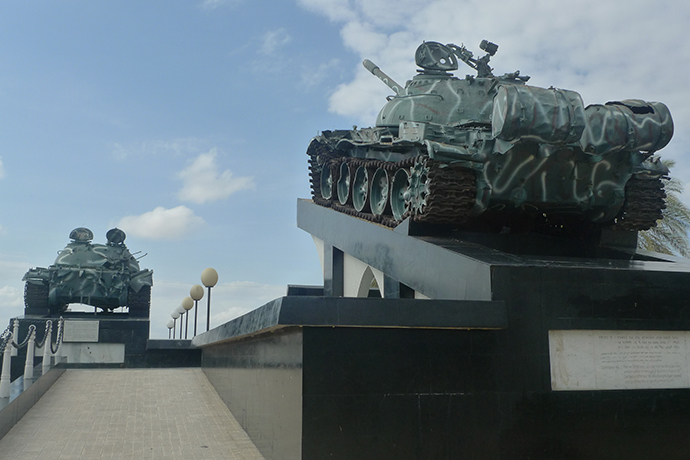
My local cameraman Mr. Azmera, summarized the event:
“As the ‘coup’ was taking place, I was just leaving the Presidential compound, after working there for some time. I walked out, ate lunch… Then at 4PM I was called and told: ‘Al-Jazeera is reporting that there was a coup in Asmara!’ I just ignored them, and walked home.”
The attacks against Eritrea are unabashed, but praise is rare.
“You can find out how much we have achieved, if you read specialized UN reports,” explains Dr. Misray Ghebrehiwet. “But the mass media never quotes these reports and so the general public abroad mostly gets fabrications and negative propaganda about our country.”
*
Eritrea works extremely hard to build its own country, as well as a sound alternative development model for the rest of Africa.
It is one of the countries that are facing, with courage and dignity, the most powerful adversary on earth.
Although Eritrea is used to great tests, it deserves support from much bigger countries that are presently facing similar challenges. It is because Eritrean people are not struggling only for themselves, but for all of us, who are unwilling to surrender to imperialism!
The statements, views and opinions expressed in this column are solely those of the author and do not necessarily represent those of RT.
The statements, views and opinions expressed in this column are solely those of the author and do not necessarily represent those of RT.
